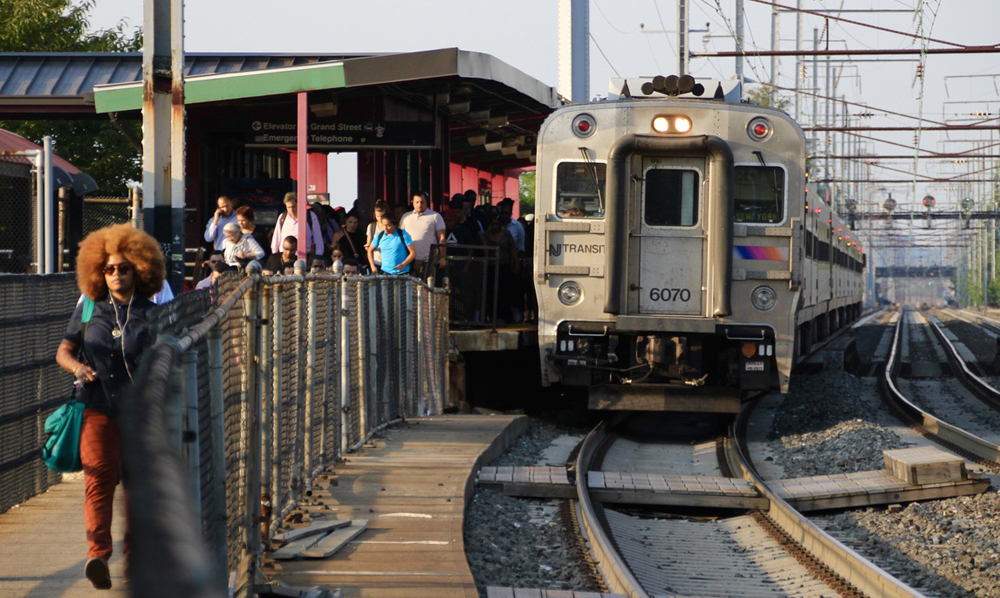
NEWARK, N.J. — Almost two years after voting to do so, NJ Transit locomotive engineers launched a strike today (Friday, May 16) at 12:01 a.m., leaving some 350,000 daily riders without their normal way to and from work.
The strike shut down the agency’s 12 commuter rail lines, serving some 166 stations. Buses and light rail routes are not affected, but NJ Transit has said its bus service will only be able to accommodate a fraction of the rail ridership. Officials have urged customers to work from home if possible.
New Jersey Gov. Phil Murphy said at a press conference late Thursday night that the strike will “upend the lives of hundreds of thousands of New Jerseyans,” while NJ Transit CEO Kris Kolluri said he remains committed to “remaining at the bargaining table for as long as it takes to get an agreement finalized.”
The Brotherhood of Locomotive Engineers and Trainmen, which represents about 450 NJ Transit engineeers, says on its website that the two sides were unable to reach an agreement following 15 hours of nonstop bargaining on Thursday. The union launched picketing at several sites as of 4 a.m. today. Union members have been working without a contract since 2019, and have sought a significant pay increase, saying they are paid less than engineers at all comparable commuter operations. The union says its members make at least $10 per hour less than engineers for passenger railroads that share platforms with NJ Transit.
BLET National President Mark Wallace said in a Teamsters press release that the strike “could be over in an instant if NJT offers a fair contract. … Our members at NJT only want to be paid the same as engineers who work for other commuter railroads that share the same train platforms. NJT can afford it. We will hold the line for as long as it takes.”
As the union has throughout negotiations, Wallace also blasted the transit agency for its 2024 move to a new headquarters building adjacent to Newark Penn Station.
“NJ Transit has a half-billion dollars for a swanky new headquarters and $53 million for decorating the interior of that unnecessary building,” Wallace said in a press release. “They gave away $20 million in revenue during a fare holiday last year. They have money for penthouse views and pet projects, just not for their front-line workers. Enough is enough. We will stay out until our members receive the fair pay that they deserve.”
NJ Transit, in turn, says its other 14 rail unions have accepted contracts under a pattern bargaining agreement, and that it cannot afford the terms sought by engineers. “I have always said that any deal we reach would have to be fair to our engineers and fiscally responsible without burdening our riders or the taxpayers of New Jersey,” Kolluri said Thursday.
Murphy and Kolluri are scheduled to hold another press conference today at 10 a.m. ET.
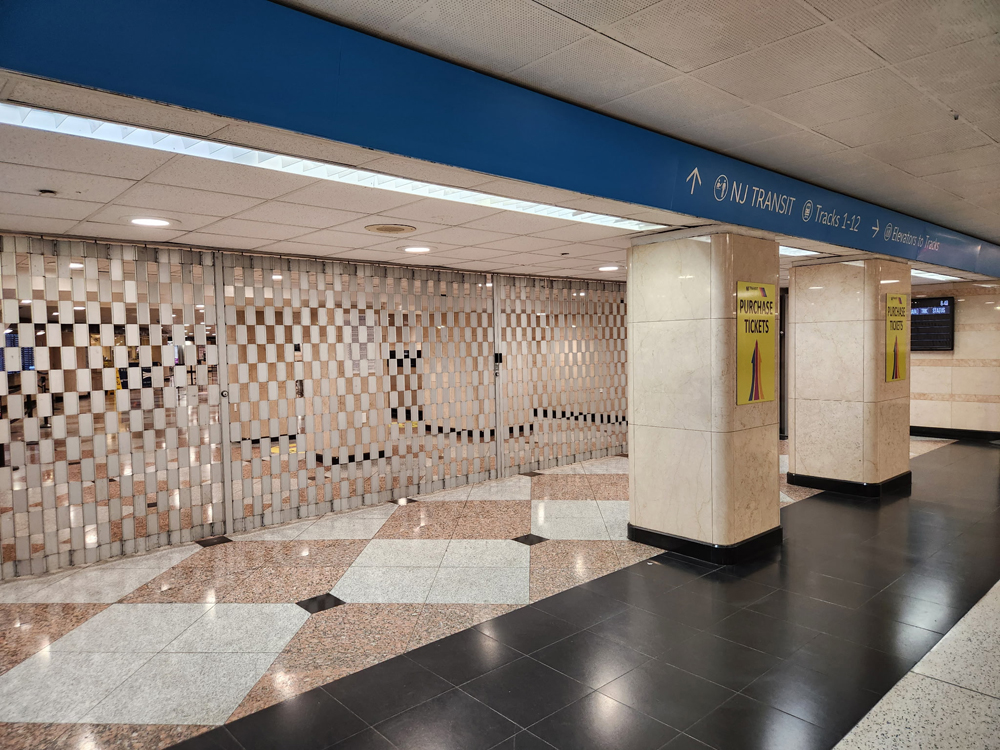
Engineers voted to strike in August 2023 [see “NJ Transit engineers vote to strike,” Trains News Wire, Sept. 1, 2023]. But under the complex rules of the Railway Labor act, the two sides had to participate in mediation, have one side reject binding arbitration, then await non-binding recommendations from two Presidential Emergency Boards before “self help” — a strike or lockout — was allowed. Even that deadline was pushed back for a time, as the union and agency announced a tentative contract agreement in April, only to have 87% of BLET members vote down the deal [see “NJ Transit engineers reject contract,” News Wire, April 15, 2025].
The start of the strike triggered an NJ Transit contingency plan including temporary Park and Ride locations and additional bus service for communities along its rail lines. However, the agency estimated the expanded bus service could only handle about 20% of normal rail ridership and urged those who could work from home to do so. Neighboring transit agencies PATH and Metro-North also launched contingency plans, with Metro-North honoring tickets for those who usually use its West-of-Hudson services provided by NJ Transit, while PATH deployed station “ambassadors” to help those unfamiliar with its system, and was prepared to add service to respond to overcrowding.
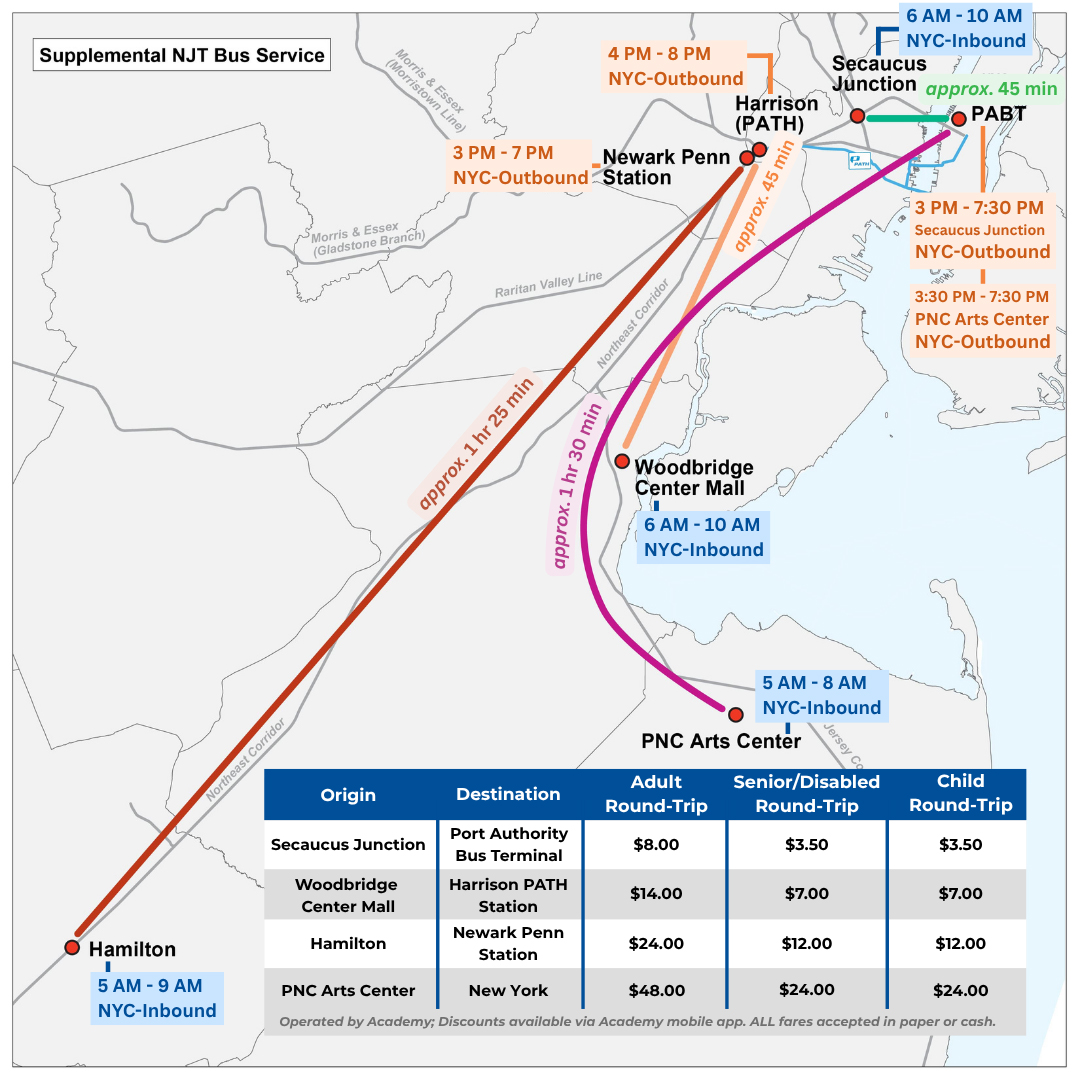
The strike is not only the first for NJ Transit since 1983, but a rare walkout among major North American commuter rail systems. A Long Island Rail Road strike on June 17, 1994, was resolved the next day, with trains returning on June 19; a four-day strike by workers at Toronto-area operator GO Transit in November 2022 affected bus service but not rail operations. California’s Santa Clara Valley Transportation Authority did experience a strike earlier this year, but that agency serves about 100,000 riders daily with bus and light rail service, not commuter rail.
— Updated at 8:12 a.m. CT with additional comment from BLET president.






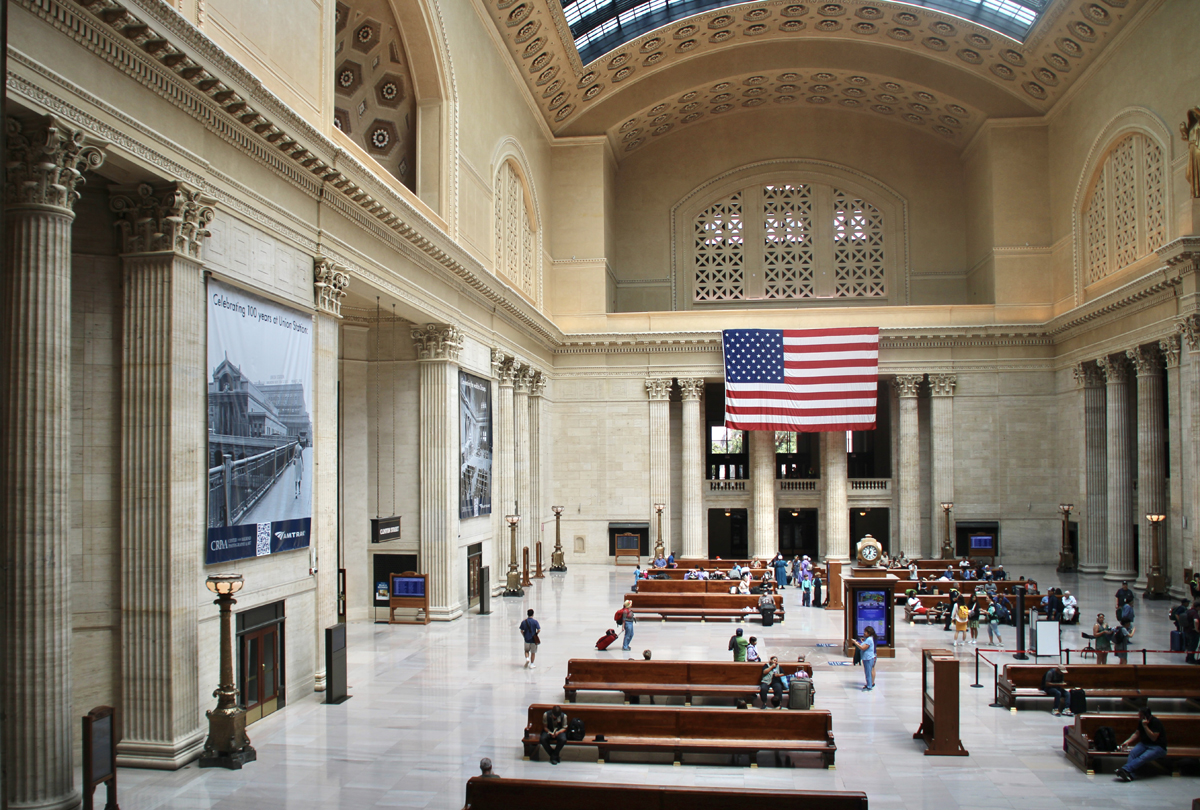
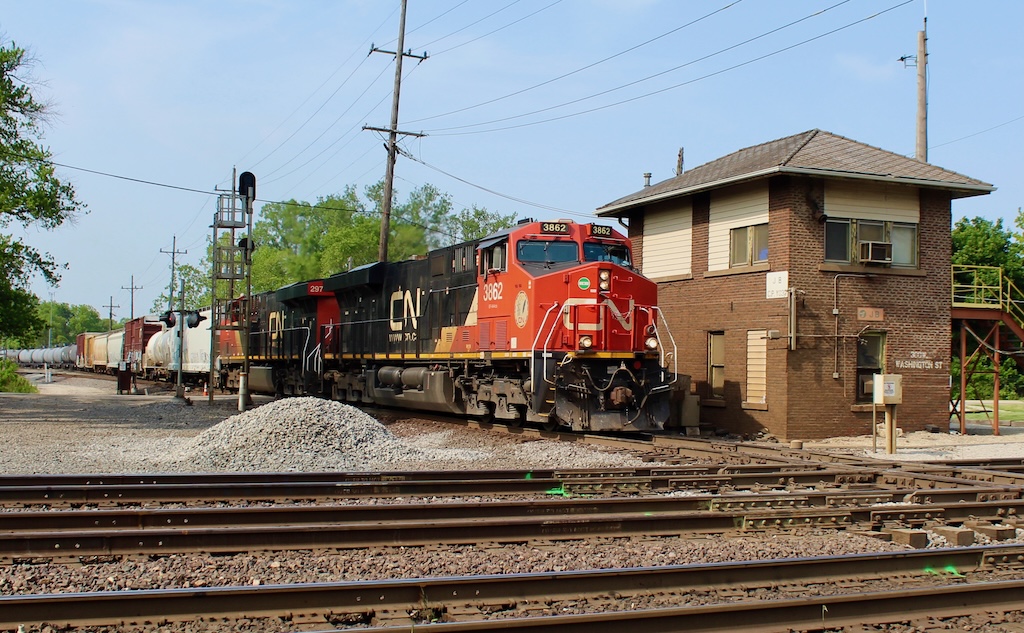
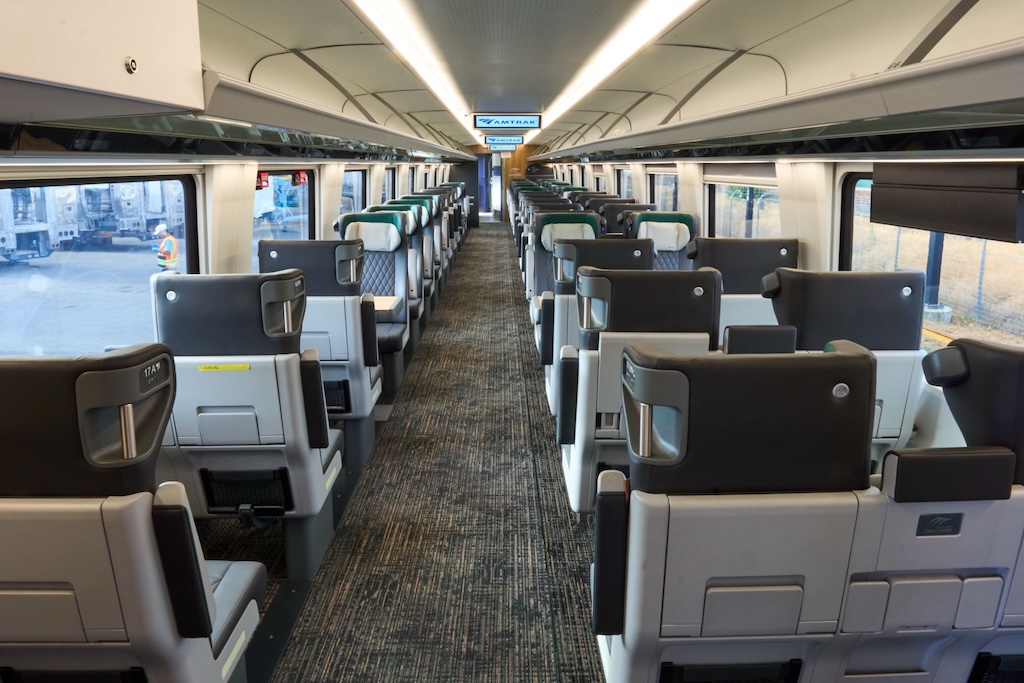
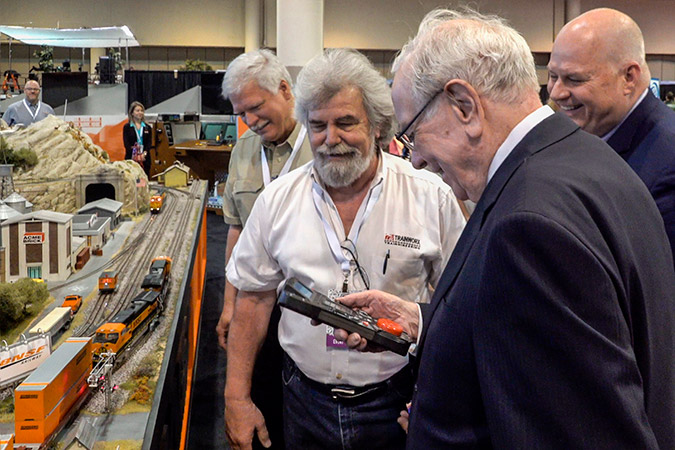




After strike settled, I wonder how long it will take to bring back service. Just two months ago Santa Clara’s Valley Transportation Authority settled their strike and it took numerous days to start back up.
Because they turned off the power, Thieves stole thousands of feet of coper wire when that agency was on strike. That system is only 42 miles long. NJ Transit has hundreds of miles. With copper scrap at a premium, winder how much will get ripped down.
Charles you say that you “never have said a syllable against the working hands of America. Only against unions.” I’ll guarantee you my friend that myself and my union brothers and sisters were in the “working hands” category. And very proudly so. And when you talk against one you talk against the other.
Over the course of my career I had many managers, supervisors and foremen. Some very good some very bad. The ones who respected us we respected and worked hard for. The ones who didn’t respect us usually had a chip on their shoulder against unions that they probably learned in college or family, who knows. But they did their level best to make our lives hell. I once had a Division manager tell me he could fire anybody he wanted for any reason and before the union could get their job back he would starve them and their families to death. And without the union he could have done just that. He finally got himself fired and took a VP down with him. What goes around comes around as it should. We didn’t respect management of that type at all. We hated them but THEY hated us first. But regardless of how some P.O.S. treated us. But through it all we still did our job and did it well. Because we were UNION members. I appreciate that I sit at the top of your list of hard working super skilled trades. But those skills you admire were taught to me by a lineage of hard working union linemen and I appreciate that. As I’ve said my late dad was a union locomotive engineer for 40 years. As a young man I had the opportunity to go to work with him. I know how hard he worked. The long hours with little rest and away from home for half of his and our lives. It might sound simple to you Charles to run locomotive for 10 hours or more at all hours but that’s because you haven’t been there ole boy. Do you know why locomotives have air conditioning today Charles? It wasn’t because the boss thought it would be nice for the crews. It was because the unions fought for it. And 10 hour work days better scheduling and pay, benefits, safety etc. All by the way given to the non union and management employees also by the way. You spend 12 hours in a locomotive with no AC in the summer with the windows open running a train between Mobile and New Orleans with several hundred crossing. It’s hot and humid and the horn NEVER stops blowing. When my dad retired things were definitely better. But that was because of the unions. I have no way of knowing why you hate unions. But I could just as well hate all managers, supervisors or foremen for the horrible actions of a few but I didn’t and I don’t. Because the good ones far outnumbered the bad ones. And the same thing applies to unions and their members. Something ya might want to think about in the future.
In my workplace, almost all of management respected the electricians 100%. The only manager who mistreated his people disappeared after one year. Obviously I can’t know HR actions, which are confidential, but it seems pretty obvious he was sent home. I pat myself on the back for being one of the staff who blew the whistle on him.
I remember well the great illegal subway strike of 1966, when TWU president Michael J. Quill famously saId “The judge can drop dead in his black robes.” Mayor Lindsay said we should look in the bathroom mirror that morning and ask “Am I essential?” I looked, I responded in the negative, and I stayed home.
I was in NYC that year as a college student except for the summer. I rode the subways a lot but wasn’t actually dependent on them, I lived on campus.
With all due respect to New York (i.e., not much) anywhere else has nicer subways.
One more reflection, if I might: As a young lawyer working in Manhattan at the time, this experience was the first inkling of many more to come that, at least in my State, that blind lady holding those scales was a scam.
wonder what this will do to the congestion in lower Manhattan?
They have all the money in the world to provide cradle to grave expenses illegal aliens and take to the streets to protect the rights for criminal immigrants, but not a equal pay for the engineers, may Jersey pols rot in hell. Right DrUrgunk?
The engineers get generous pay and benefits but want more.
This could be an interesting case study. Suppose the “usual customers” of NJ Transit find they can get along without using the service? And, even if the engineers settle quickly, enough customers stay away to where NJ Transit starts drowning in red ink that wasn’t there before?
Exactly. If people can’t depend on the train during the strike, they will tend not to after the strike.
Unless I missed it, I didn’t see in the article any mention of the salaries and benefits these guys get now — as has been reported elsewhere.
A labor union is a conspiracy in restraint of trade – blatantly illegal for the employer, protected by law for the employee.
Charles as a retired IBEW union lineman and the son of a retired BLE union locomotive engineer, you know what you can do with your opinions on unions. Organized Labor is what built the middle class in this country. President Ron with his “ trickle down economics” and anti-union rhetoric are what have almost destroyed the middle class in this country. Since then the rich have gotten richer and the blue collar working class poorer. Even you can’t deny that the disparity in wealth between the top 10 or even one percent for that matter, and the rest of Americans is outrageous. No doubt there has been corruption in unions over the years. There’s also been corruption at companies in lower and upper management in government, etc etc. I’ve been associated with unions for my entire life I can confidently say the vast majority of members and their leaders are honest hard working men and women. And as such they/we deserve fare wages and good benefits and working conditions. I don’t know what you did for a living Charles and don’t really care. But I suspect it was in a cushy air conditioned office pushing a pencil. Not that there’s anything wrong with that. Somebody’s got to do it I guess. But somebody down the line was putting in the hard labor that made that comfortable, easy work life possible for you. And without them YOU Charles wouldn’t have had a job. So you shouldn’t begrudge them that they should be fairly compensated. But you will because you’re just that kind of a guy aren’t you.
CHRIS —- I never have said a syllable against the working hands of America. Only against unions.
Did I sit in an air-conditioned office? More hours than not, but that hardly describes the job. I’m not an electrician or a lineman. I always got along with both trades. The highest voltage I ever personally worked live was 4800 VAC single-phase, getting out of the office to watch over and actually assist hands-on my crew. Aside from working live that one time, I was on site (and now and then worked hands-on voltage open), for way more installations than I could count, the highest being 14400 VAC single-phase.
I was an electrical crew member (sometimes, crew leader) on hundreds of houses for Habitat for Humanity (Milwaukee mostly, then Waukesha County), under the overall supervision of master electricians.
As you are a retired lineman, Chris, you sit at the very top of my list of hard-working, super-skilled, productive trades. You have my very highest respect.